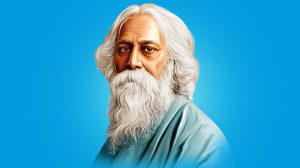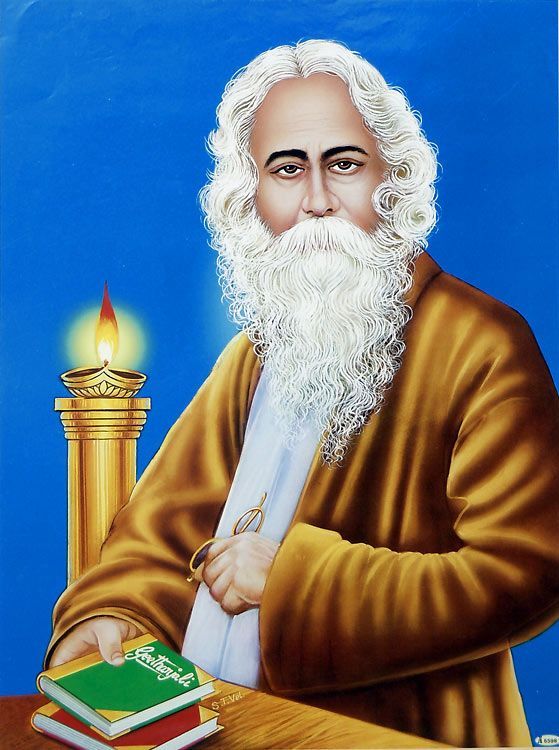Rabindranath Tagore: The Luminary of India’s Cultural Renaissance
A Polymath Beyond Compare
Rabindranath Tagore, born on May 7, 1861, in the Jorasanko mansion in Calcutta, India, was a luminary whose contributions as a poet, writer, playwright, composer, philosopher, and painter have left an indelible mark on the world. Known as the Bard of Bengal, Tagore’s multifaceted genius and deep humanism earned him a unique place in the annals of literature and culture.
Early Life and Education
Tagore was born into an illustrious and affluent family deeply involved in the Bengal Renaissance. His father, Debendranath Tagore, was a prominent philosopher and religious reformer, and his mother, Sarada Devi, was a devoted homemaker. From a young age, Rabindranath was exposed to a rich cultural milieu, which included traditional and modern literary works, music, and art.
He began his education at home under various tutors and later attended several schools, though he found formal schooling restrictive. Tagore was eventually sent to England in 1878 to study law but returned to India without completing his degree. His time in England, however, exposed him to Western literature and music, which influenced his creative works.
Literary Genius and Nobel Laureate
Tagore’s literary career began at a young age. He wrote his first substantial poem at the age of eight and had his first collection of poems published by the time he was sixteen. His works, written primarily in Bengali, include a vast array of poems, songs, short stories, novels, and essays.
His magnum opus, “Gitanjali” (Song Offerings), a collection of deeply spiritual poems, won him the Nobel Prize in Literature in 1913, making him the first non-European to receive this honor. “Gitanjali” reflects his profound spirituality and universal humanism, capturing the essence of the human soul’s yearning for the divine.

Musical Maestro and Artistic Visionary
Tagore was also a prolific composer, having created more than 2,000 songs, now collectively known as Rabindra Sangeet. His music, characterized by its emotive lyrics and melodious compositions, remains an integral part of Bengali culture and has influenced generations of musicians.
In his later years, Tagore took up painting, producing thousands of artworks. His visual art, marked by its bold strokes and innovative forms, showcased his creative versatility and further cemented his legacy as a polymath.
Educator and Social Reformer
A visionary educator, Tagore founded the Visva-Bharati University in Santiniketan in 1921. He envisioned an educational institution that integrated the best of Eastern and Western philosophies and promoted holistic learning. Visva-Bharati became a center for cultural and intellectual exchange, attracting scholars and students from around the world.
Tagore was also an ardent social reformer. He advocated for the abolition of the caste system, women’s rights, and the upliftment of rural India. His plays and essays often highlighted social issues and called for progressive change.
A Legacy of Humanism and Universalism
Tagore’s philosophy transcended regional and national boundaries, emphasizing universal human values. He was a critic of British colonial rule and supported India’s independence movement, yet he advocated for non-violence and unity among all people.
Tagore’s contributions to literature, music, art, and education have left an enduring legacy. His works continue to inspire and resonate with audiences worldwide, reflecting his timeless relevance and the depth of his humanism.
Rabindranath Tagore passed away on August 7, 1941, but his spirit lives on through his vast body of work, which continues to be celebrated and cherished globally. His life and achievements remain a testament to the boundless potential of human creativity and the enduring power of artistic expression.
